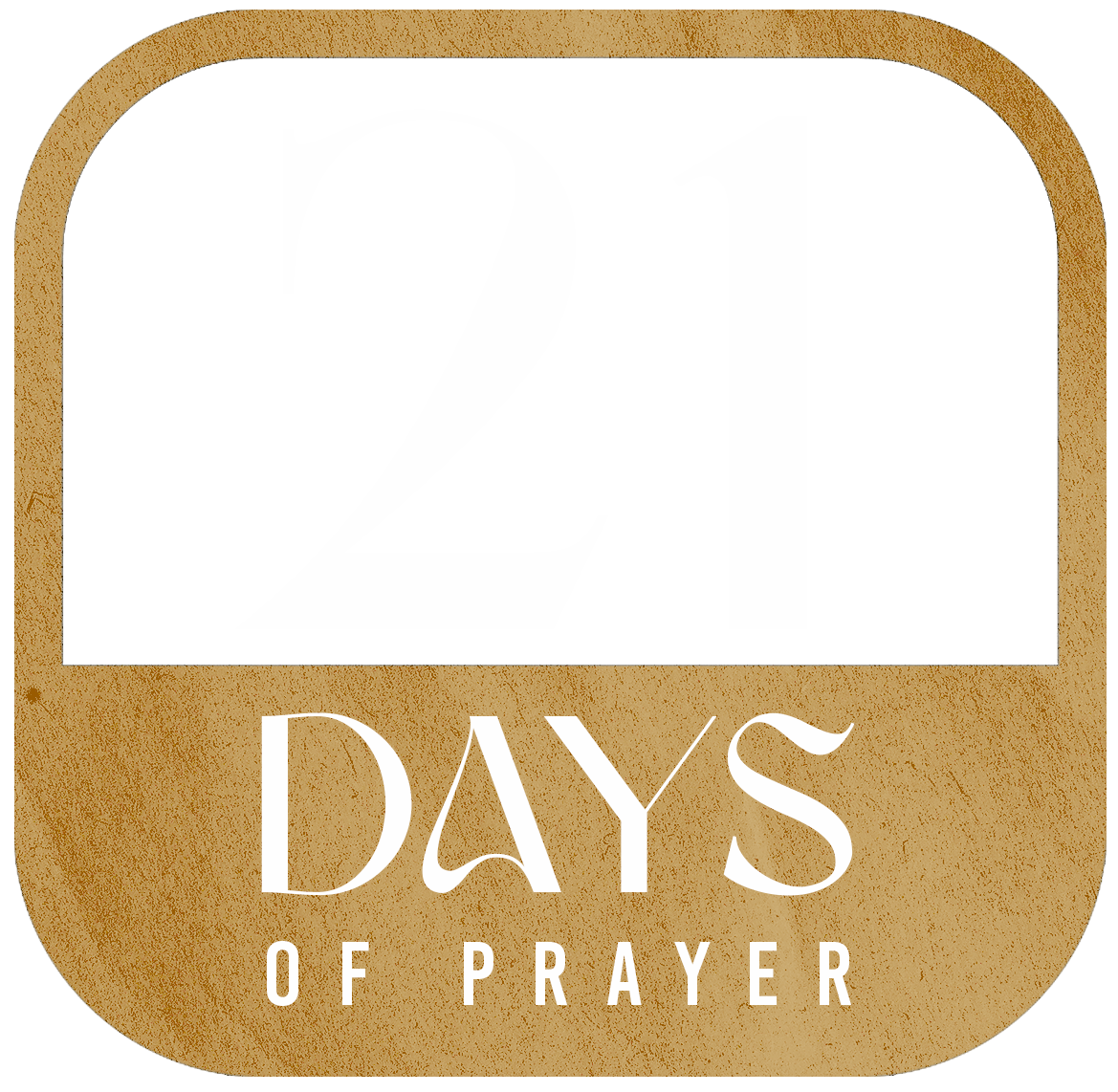We want to begin 2025 by crying out to God together. Join us for 21 Days of Prayer January 5 – 26. We want to commit together to call out to God for 21 consecutive days for our families, our church, and our nation. During this time, you may fast to whatever degree God leads and is appropriate for you. Those who cannot fast from food may choose to fast from social media, television, or something similar. Even if you cannot fast, pray with us. We want everyone to participate in some way. Join us for 21 Days with a great expectancy for God to work in our lives and our church mightily.
Click here to download our app to access the daily prayer guide.


